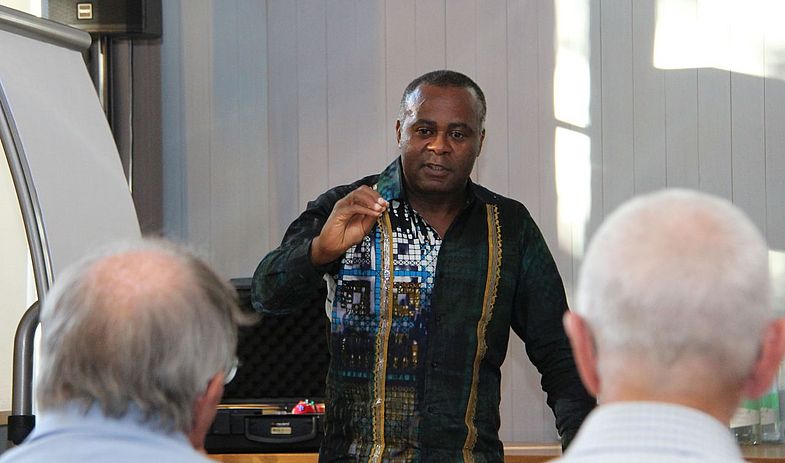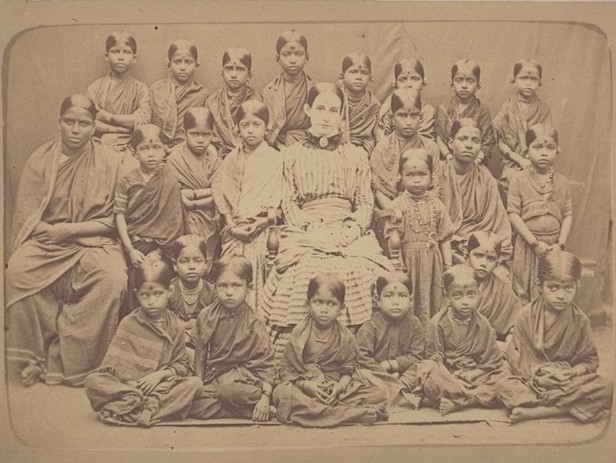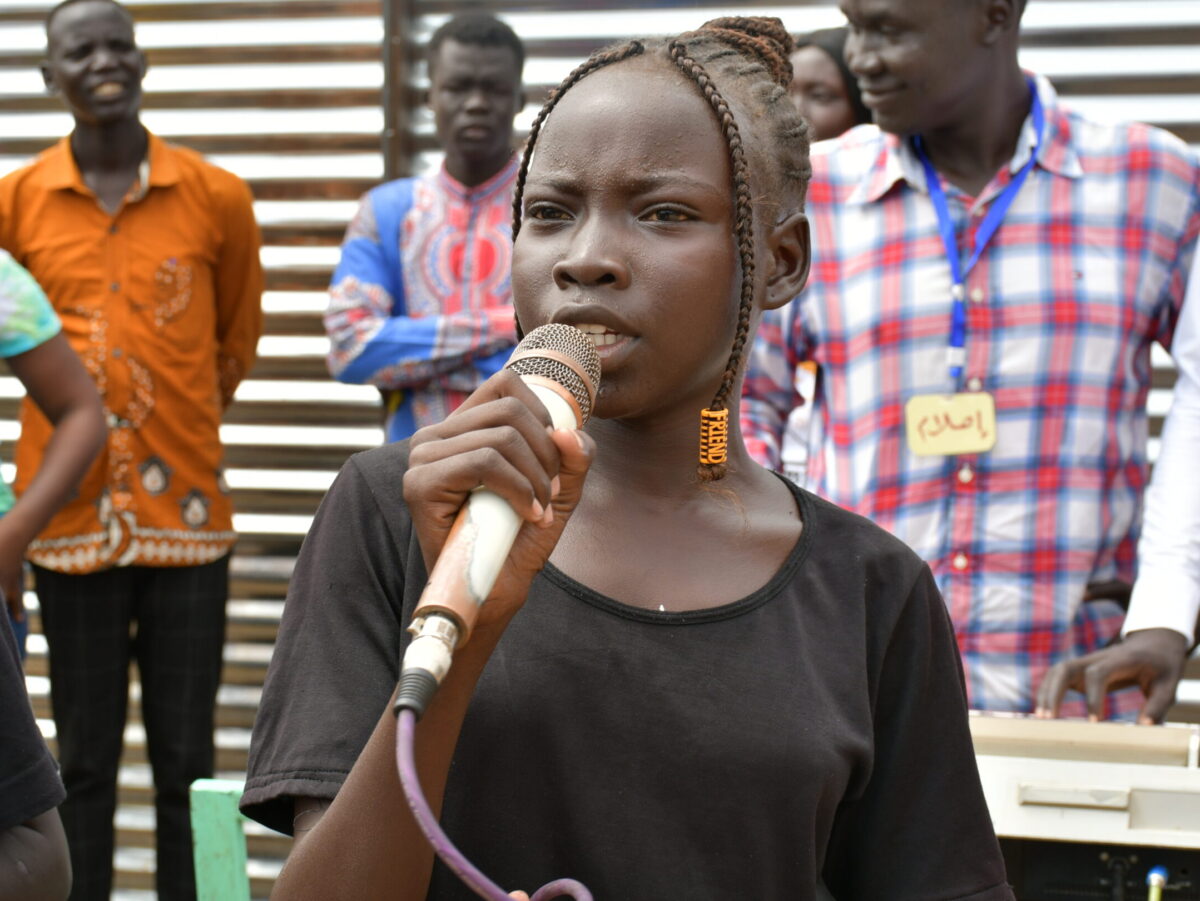Lumumba Mukong begins his talk at the Mission House with a positive signal. He emphasizes that he has hope that the armed conflict in Cameroon will come to an end. Even if it does not look that way at the moment. The armed separatists, who have been demanding independence from Cameroon in the Anglophone west for three years, and the government in the Francophone east of the country are holding firm to their positions. The population suffers from acts of violence committed by both sides, the government soldiers and the separatists.
Over half a million refugees in their own country
Lumumba Mukong tells the small but interested audience in the Mission 21 lecture hall how difficult the situation of the civilian population is. According to the latest UN estimates, there are more than 530,000 refugees in their own country. In addition, there are tens of thousands of people who have fled across the border, mainly to Nigeria. The people in the forests have hardly any food, suffer from medical problems and poor hygienic conditions, explains the country coordinator for Cameroon.
The people who have remained in the villages and towns continue to struggle with everyday problems. For three years now, there has been almost no school education. 90 percent of the schools have been forcibly closed, under pressure from the separatists. The supply situation is poor, as many plantations have also been destroyed: "I had to swallow back tears when I saw the charred remains of a banana plantation that used to grow lushly," Lumumba Mukong recounts.
Emergency aid for 30,000 people - also thanks to partner churches
With the aim of helping as many displaced people as possible, Mission 21 launched an emergency aid and reconstruction program last year. Since then, more than 30,000 people have been provided with food, medicine, clean water and hygiene products.
Support is provided jointly with local partners. The Presbyterian (PCC) and Baptist (CBC) churches, various non-governmental organizations, as well as the UN and the International Red Cross work together. Volunteers from Mission 21's partner churches in particular also take risks. When they bring food and goods to the displaced regions, they expose themselves to the risk of being attacked by gunmen from both camps.
Raising awareness of the conflict and the need
The fact that the violence taking place in Cameroon is finally becoming better known is important for Lumumba Mukong. For too long, the world public has hardly heard anything about this conflict. But there is still too little media coverage, even in Europe, Mukong regrets. His visit to Basel should also contribute a little to bringing the suffering of the people in Cameroon to the attention of a wider public.
First, however, it is important to bring the urgently needed support to the people on the ground. Mission 21 and its partners have so far been able to reach 30,000 people on the ground. But even more people would need help!
Text: Christoph Rácz, Photo: Miriam Glass
► Information about our emergency aid project in Cameroon
"No war in Cameroon!?" was the title of another event on the topic at the Heiliggeistkirche in Bern on June 12. The lawyer Dr. Nkongho Felix Agbor-Balla from the "Anglophone Civil Society Consortium (CACSC) and the country coordinator of Mission 21, Lumumba Mukong, spoke about the current situation in the Anglophone regions in Cameroon. Gregory Mattis from the Swiss Foreign Ministry contributed the perspective of Swiss foreign policy to the topic.






